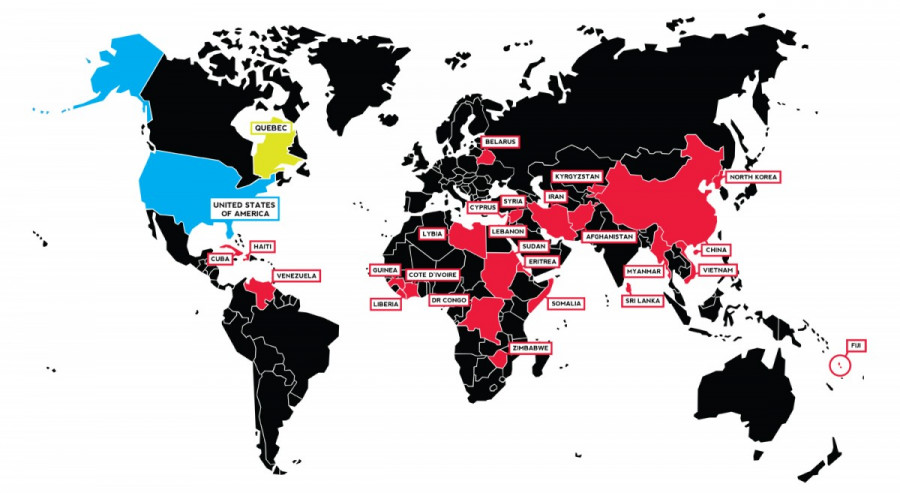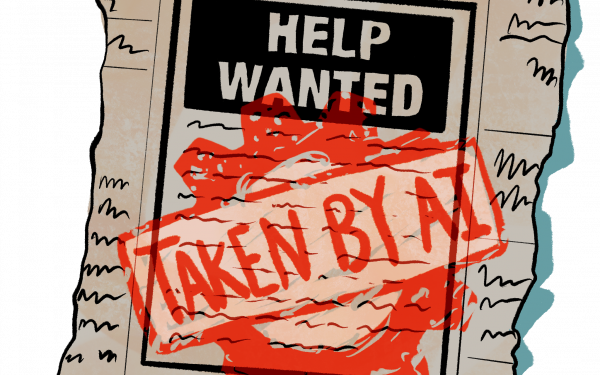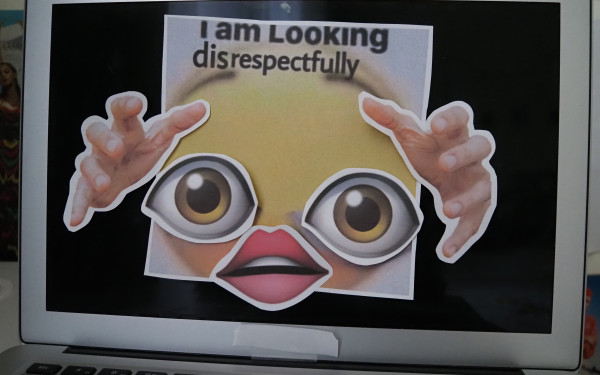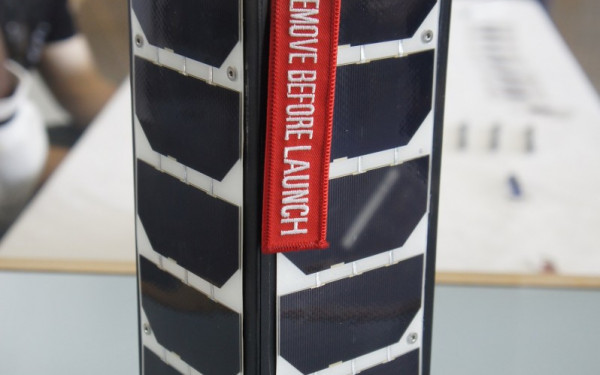The Well-Kept Secrets of the Aerospace Industry
How Foreign-Born Engineers Struggle to Practice in Canada
Stories like Joe’s have become a kind of tragic cliché—a foreign-born resident with a number of impressive credentials, forced to drive a taxi to make ends meet.
While it’s not uncommon to hear of immigrants having difficulty finding work in their area of expertise due to the geographical origins of their credentials or their linguistic ability, the reason Joe can’t find work seems a bit harder to grasp.
Joe, who asked that he be referred to in print by a pseudonym due to pending legal action, has lived in Canada since he was a year old.
He received his diploma in Aircraft Structuralism at a Montreal college and a finance degree at Concordia University.
While many fresh out of university have trouble finding a job in the current economic climate, some students in Montreal have their fate already sealed by American anti-terrorism policy.
The reason Joe cannot find work in his area of expertise, aerospace, isn’t because he was educated in Lebanon. It’s because he was born there.
Turned Down for the Job
About a year ago, Joe had an interview with aerospace contractor Aerotek for a position at Bell Helicopters, which operates a plant in Mirabel, QC.
“I went in for the interview and [the interviewer] said, ‘The interview is great—Bell is looking for people like you,’” Joe explained, adding that he already had a good file at Aerotek because of the work he did for Bombardier upon graduation.
“I was one of the best workers at Bombardier,” Joe recalled. “Out of all the people they hired, I was the last to go.”
But according to Joe, the interview with Aerotek ended with a pause and one final question: “Were you born in Canada?”
When Joe told his interviewer he was born in Lebanon, the woman interviewing him explained that she could not put him through the hiring process of Bell—because Lebanon was on a list of countries whose nationals weren’t eligible for the position.
Joe is one of many new to the aerospace industry that fall under American aerospace and defense regulations called the “International Traffic of Arms Regulations.”
ITAR compels virtually every aerospace employer around the globe that handles information relating to the American defense system to put tight restrictions on employees or prospective employees who have ties to any of the proscribed countries.
Those who were born in or were in frequent contact with one of the 26 listed countries—which include Syria, China, Iran, Haiti and Lebanon—are often automatically turned down for jobs or face tight restrictions because of their birthplace.
“I consider myself more Canadian than Lebanese—I was just born there,” said Joe. “I was shocked. I went to school here and I spent two years to get this diploma in aerospace and now I’m not even working [in aerospace]. I feel like I wasted two years of my life.”
They Don’t Teach You This in School
It is hard to pinpoint just how many resumés and interviews are thrown out because of the regulations.
Applicants may never hear back from companies and may not realize the role ITAR played in their not getting the position, said Fo Niemi, executive director at the Center for Research-Action on Race Relations, a Canadian civil rights organization that’s handling Joe’s case.
But what is clear is that Joe’s struggle with the policy is not an isolated one.
Many students at colleges with aerospace diplomas and even in relevant programs at Concordia also go through their degrees having barely heard of the regulations, or knowing little about them.
“We’ve spoken to student associations and advocacy [at Concordia] but they say they never receive any calls because people don’t know the rule exists,” said Niemi.
“It’s not until they go out and look for a job that they realize they can’t get a job—probably because of where they were born.”
A number of Concordia students have confirmed that they weren’t aware of the policy.
“Nobody told me about ITAR in my program. I had a quick discussion before my work-term with my coordinator at co-op about the difficulties I would face,” said Mehdi Sabzalian, a member of Space Concordia and a mechanical engineering major. “However, we didn’t go into too much detail.”
Sabzalian, who worked at Pratt & Whittney, another major aerospace manufacturer with facilities near Montreal, said his interaction with ITAR was limited, but that there were instances when he could not finish his work because he did not have proper clearance.
“Some of my Concordia friends, who were working there at the same time as me needed ITAR clearance. In their work, they had to refer to ITAR documents and drawings,” he explained. “I think Concordia students who are born in the proscribed countries will not most likely be able to do those kind of jobs.”
Companies who do extend the courtesy of letting potential employees know that they did not hire them because of the regulations expose themselves to possible lawsuits like Joe’s or the ones that have been heard sporadically by human rights tribunals in Quebec and Ontario since the early 2000s.
Others may feel like they have to use covert methods to adhere to the policies.
“We tell people to be careful when you apply, just be careful, don’t say on the outset where you went to high school or [completed] your undergraduate studies,” said Niemi.
And so, while many of Concordia’s students are putting the finishing touches on job and internship applications to positions in Quebec’s largest manufacturing sector, Joe is prepping for a legal standoff with Textron, Bell Helicopters’ parent corporation.




1_600_375_90_s_c1.jpg)


